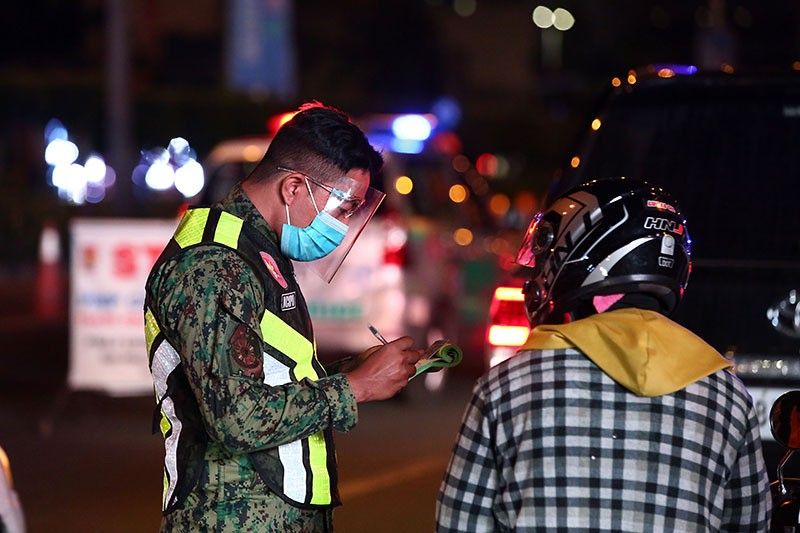Uncontrolled infections leading to fiscal strain a 'credit negative' — Moody's

MANILA, Philippines — Moody’s Investors Service gave Philippines its clearest warning yet against how the year-long pandemic can lower its most-prized investment grade rating, one that economic managers have gone through lengths to protect.
The risk emanates mainly from the likelihood of overshooting expense programs due to the inevitable need to roll out new aid because of fresh infections and restrictions. All while growth sputters and the tax base erodes due to lower corporate taxes from a priority legislation.
“(The) spike in coronavirus infections delays economic recovery, a credit negative,” Moody’s said in a research note on Monday.
“The renewed measures will delay economic recovery, weigh on prospects for fiscal consolidation and exacerbate social risks,” it added.
It was, in memory, the sternest signal yet from a major debt watcher on how the failure to contain COVID-19 may prompt a downgrade. While officially no such action has been taken toward that end, such as putting the Philippines on negative watch, Moody’s warning is significant considering how credit raters had given countries leeway to incur deficits and debts to finance their pandemic response over the past year.
For the Duterte administration, the implications can be vast. President Rodrigo Duterte’s economic team had avoided launching a big fiscal stimulus over losing its investment grade rating, despite calls from observers that a convincing response to the health crisis at the onset would have saved the day earlier.
Moody’s currently rates the Philippines Baa2, an investment grade, with stable outlook last affirmed in July 2020. Since then, the government has focused its energy toward passing four measures it claims would assist recovery namely the P4.5-trillion national budget, the Financial Institutions Strategic Transfer (FIST) Act, the Corporate Recovery and Tax Incentives for Enterprises (CREATE) and the Government Financial Institutions Unified Initiatives to Distressed Enterprises (GUIDE) bill.
Three of these bills, save for GUIDE, have been enacted, but Moody’s flagged at least one of them, CREATE, indicating that the law’s intent to lower corporate income tax rates to 20% or 25% depending on firm size comes at a wrong time when the economy is struggling to grow, dampening chances of collecting more taxes.
“The tightened restrictions on households and businesses have prompted calls for another stimulus package while the weak economy weighs on taxable income,” Moody’s said. “At the same time, the recently passed… CREATE may worsen near-term weakness in tax revenue.”
“Weaker economic growth diminishes prospects for fiscal and debt consolidation,” it said, noting as well that improving labor market may get hindered.
Earlier in the day, Acting Socioeconomic Planning Secretary Karl Kendrick Chua vouched for CREATE as “an integral part of economic recovery package.” The idea is savings from lower taxes are funneled by companies to investments and hiring, a trickle-down that has been proven unlikely to materialize most of the time.
As the first quarter approaches homestretch however, Metro Manila and four nearby urban areas were returned to lockdowns on Monday for a week because of rising COVID-19 cases. Moody’s Analytics, a separate firm under the Moody’s Group, warned the Philippines is at risk of another recession after last year’s 9.5% slump.
“With additional targeted lockdowns and foreign travel bans imposed recently, the prospects for improved consumer spending and tourism remain gloomy and employment gains in the upcoming months will be limited,” Moody’s Analytics said.
- Latest
- Trending





























